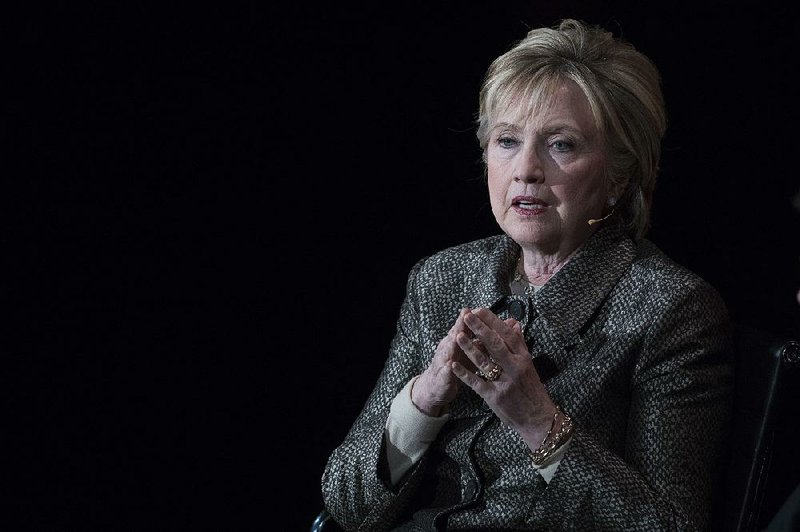Democratic nominee and former Secretary of State Hillary Clinton on Tuesday attributed her defeat in the 2016 presidential election to interference by Russian hackers and FBI Director James Comey and declared herself to be "part of the resistance" to Donald Trump's presidency.
"If the election had been on Oct. 27, I would be your president," Clinton told moderator Christiane Amanpour of CNN at a New York event of the humanitarian organization Women for Women.
After spending the past six months in relative seclusion, Clinton made a rare public appearance Tuesday and ruminated extensively for the first time on her loss. She said she has been busy writing a memoir, a process she described as "cathartic" yet "excruciating" and "painful."
While Clinton said she takes "absolute personal responsibility" for losing to Trump, she did not assign any blame to her strategy or staff. Nor did she point to her own weaknesses as a candidate or the struggles by her and her team to understand the mood of key parts of the electorate.
Instead, Clinton said a range of external forces were responsible for her defeat. She said she was a victim of misogyny and unfair treatment by the media. And she said she was confident she was on track to win the election until two things reversed her momentum: the release of campaign Chairman John Podesta's emails, which were allegedly stolen by Russian hackers, and Comey's Oct. 28 letter to Congress that he had reopened the bureau's investigation into her use of a private email server.
"I was on the way to winning until a combination of Jim Comey's letter on Oct. 28 and Russian WikiLeaks raised doubts in the minds of people who were inclined to vote for me and got scared off," Clinton said.
Clinton talked about "the unprecedented interference" by a foreign leader "who is not a member of my fan club" -- a reference to Russian President Vladimir Putin, with whom she tangled as secretary of state.
When Amanpour asked whether she thought misogyny contributed to her loss as the first female presidential nominee for a major party, Clinton said, "Yes, I do think it played a role."
Clinton repeatedly ribbed Trump in the interview, leaving no doubt that she disapproves of both his policy decisions and personal conduct in office. She suggested that Trump should tweet more about her than about foreign affairs, saying she would rather be "the diversion." And Clinton said she intends to speak out in the public arena.
"I'm back to being an activist citizen -- and part of the resistance," she said.
Information for this article was contributed by Aaron Blake of The Washington Post.
A Section on 05/03/2017
